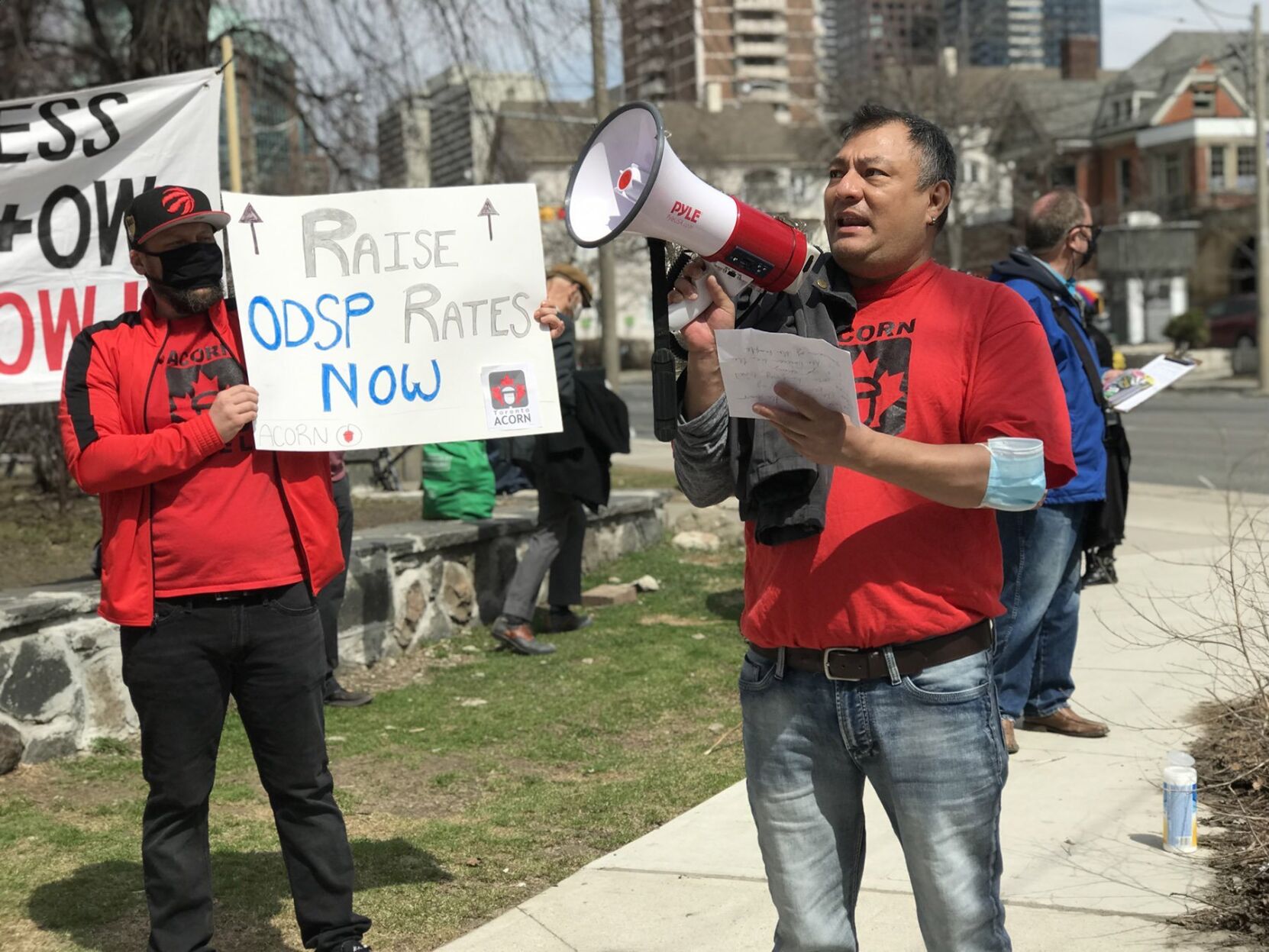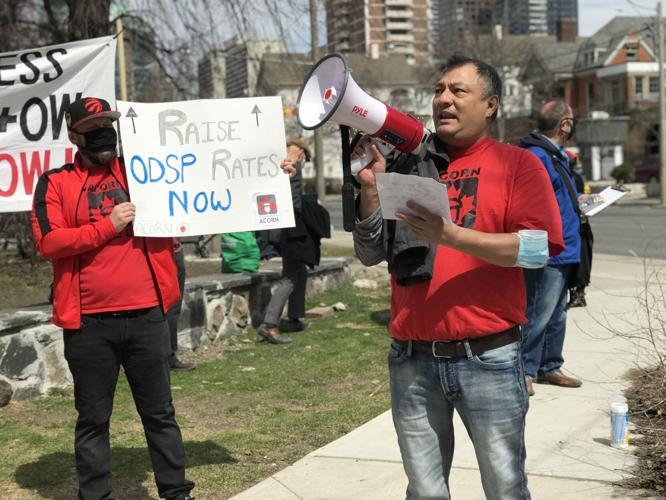Toronto.com: ‘We didn’t ask to be injured’: Torontonians on the Ontario Disability Support Program fear future without change
Posted May 13, 2022
Posted May 13, 2022
 For Bob Murphy and at least 112,000 other people across Toronto, this provincial election is potentially life-changing.
For Bob Murphy and at least 112,000 other people across Toronto, this provincial election is potentially life-changing.
Life couldn’t get much harder for Ontario Disability Support Program recipients than it is now.
Those 112,000 people (the figure is from late 2019) endured the pandemic beside their neighbours getting $2,000 Canada Emergency Response Benefit payments a month, while they got $1,169.
Kathleen Wynne’s Liberal government arranged for a three per cent increase to ODSP in 2018 — about $28 a month, “which was insulting enough,” Murphy recalled.
Doug Ford’s Progressive Conservative government made it $14.
Murphy has a $965 apartment in York South—Weston, so 86.4 per cent of his ODSP goes to rent.
After phone and internet, there’s $105 left for food and everything else. Forget new shoes or socks, he said.
“It’s a system designed to keep you down,” said Murphy, 64, who suffered a brain injury in 2011.
An outreach worker who earns $239 every two weeks but sees ODSP claw half of that back, Murphy talks to MPPs and councillors about a program he said treats recipients like pests instead of human beings.
ODSP recipients could be your nephew or neighbour, he said. “We didn’t ask to be injured and have to struggle every day.”
Opposition parties agree that ODSP rates must rise substantially. The PC party indicated no ODSP increase in its pre-election budget, but on May 9 pledged to raise program rates by five per cent and adjust them for inflation thereafter.
Ford, his party’s MPP for Etobicoke North, suggests, however, that the best thing for people receiving payments is a job.
In response to questions about ODSP, a Ford spokesperson offered a transcript of an exchange between the premier and a journalist last month in which Ford said he would support people “unable to work for any reason, be it physically, mentally,” but for those who can, “there’s endless jobs in every sector.”
Told the program doesn’t provide enough for rent, the premier responded he understood, adding, “and we’re going to be there to support those folks that can’t work as we have” over four years.
Ford has “belittled” people with involuntary disabilities, argues Kristyn Wong-Tam, the New Democratic candidate in Toronto Centre, who believes ODSP “woefully falls short in meeting people’s real needs.”
As a councillor chairing Toronto’s Accessibility Advisory Committee, she grappled with this issue, hearing from people on ODSP who “have nothing left” after paying rent, she said.
An NDP government will move ODSP recipients out of poverty in its first term, “a big commitment,” said Wong-Tam.
Mitzie Hunter, Scarborough-Guildwood’s Liberal MPP and candidate, said food bank use in her riding spiked during the pandemic and the Ford government is indifferent.
The PCs cancelled the Liberals’ basic income pilot program, an alternative to ODSP, despite “very positive” results, Hunter said.
Returned to power, she said, Liberals would examine ODSP’s adequacy — Hunter acknowledged payments aren’t enough — and make it possible to work part-time without having benefits clawed back or threatened.
Alejandro Gonzalez Rendon, after delivering a letter demanding higher payments to ODSP’s offices on April 13, said rates must double so recipients can “just get by.”
“People are behind rent, and many are facing homelessness” as well as acquiring debt or relying on relatives for support, he said.
The downtown co-chairperson of advocacy group Toronto ACORN, Gonzalez Rendon added recipients “are very afraid” for the future if nothing changes.
So is Kyle Vose, spokesperson for ODSP Action Coalition, which staged a Queen’s Park rally on April 28 knowing that many recipients couldn’t afford the transit fare to come.
The group hopes to make ODSP rates, and the demoralizing effect they have on recipients, a campaign issue.
“It shouldn’t be about charity. It’s about dignity and respect,” Vose said.
John Stapleton, a policy analyst from Scarborough, estimates 10.6 per cent of Scarborough residents were on Ontario Works or ODSP in 2020.
Social assistance rates fell, in real terms, by 25 per cent over 25 years, Stapleton wrote last month.
On such small allowances, overall health suffers and everyone’s health costs go up, he said, suggesting people ask candidates “what they are going to do to raise incomes for the poorest amongst us. Not just for them, but for all of us,” he said.
***
Article by Mike Adler for Toronto.com

